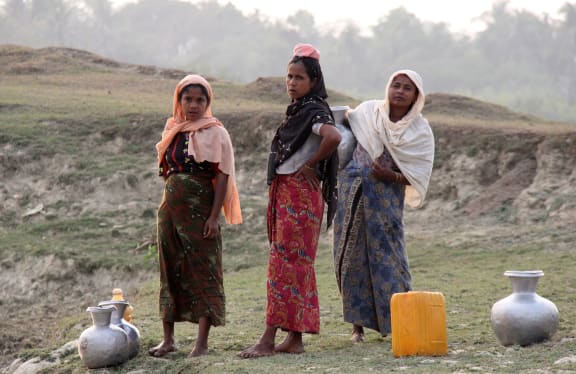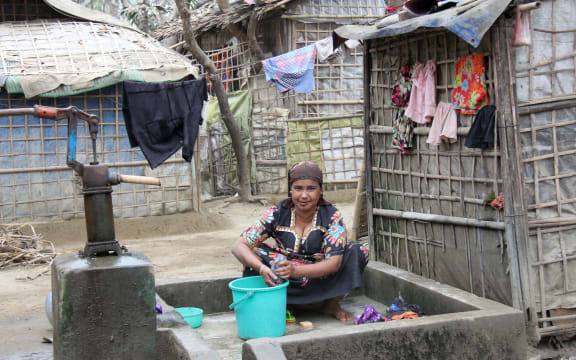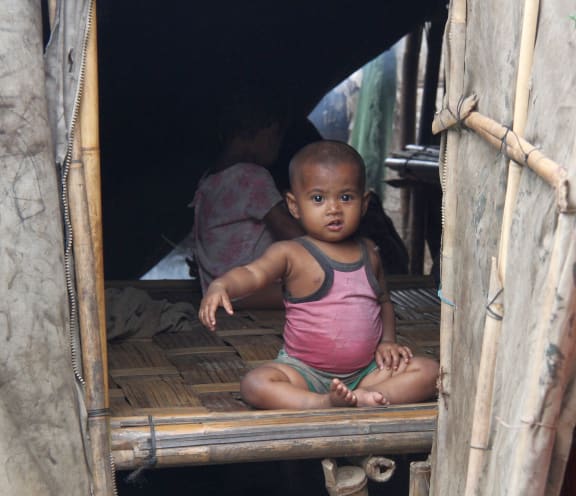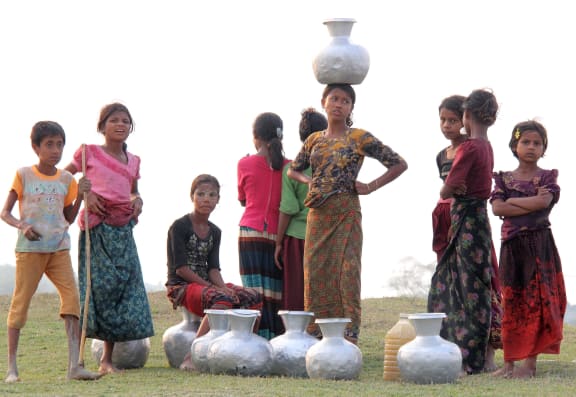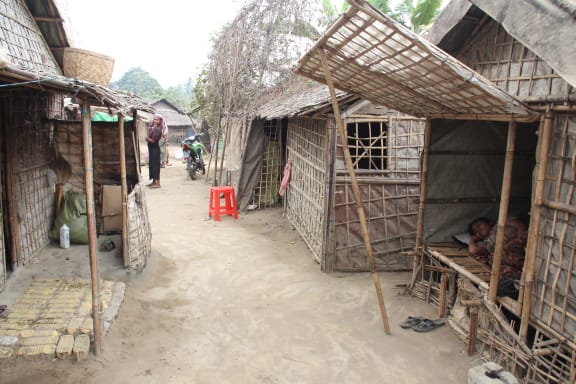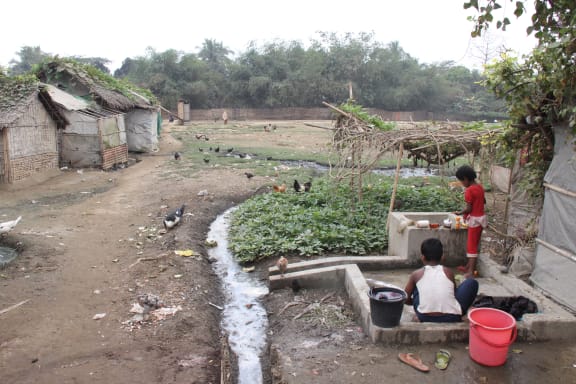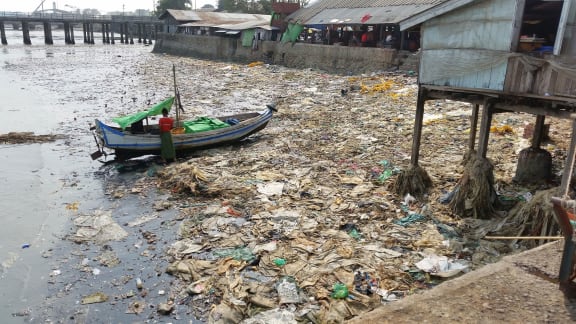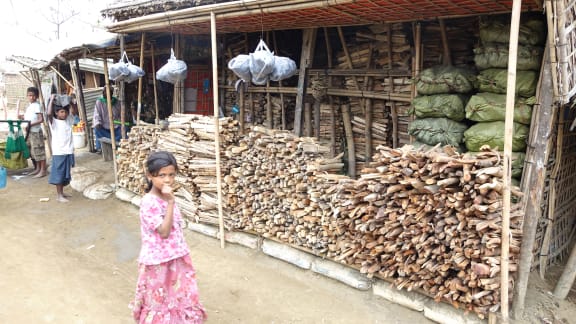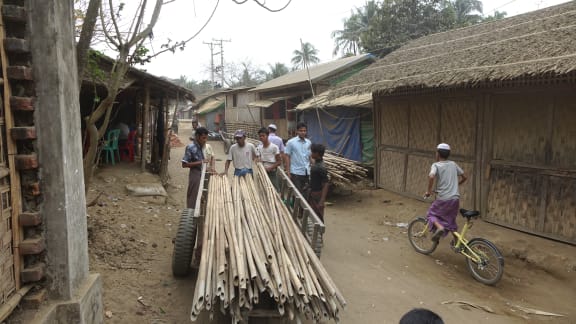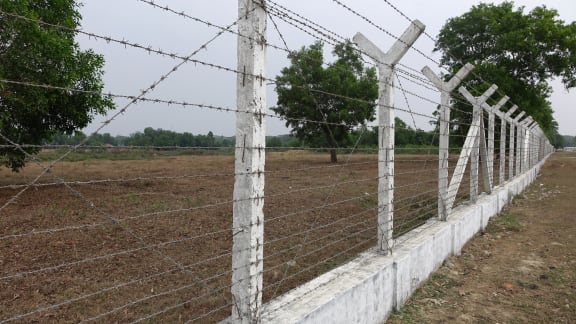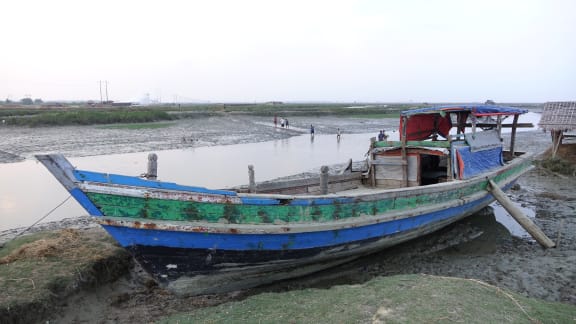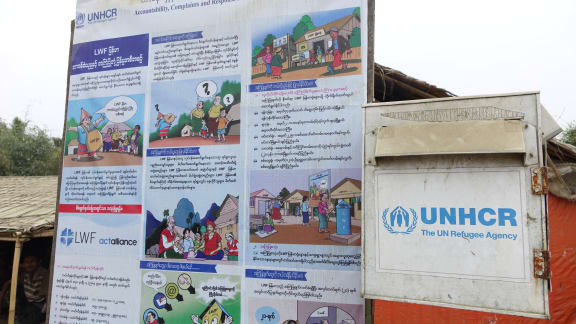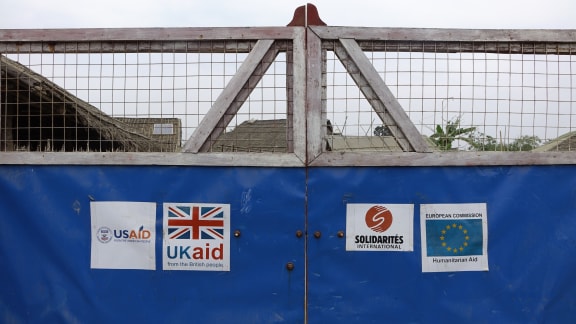They can't travel freely, struggle to access education and healthcare and are targeted by human traffickers. Will the lives of Myanmar's Rohingya people improve now Aung San Suu Kyi's National League for Democracy is in power?
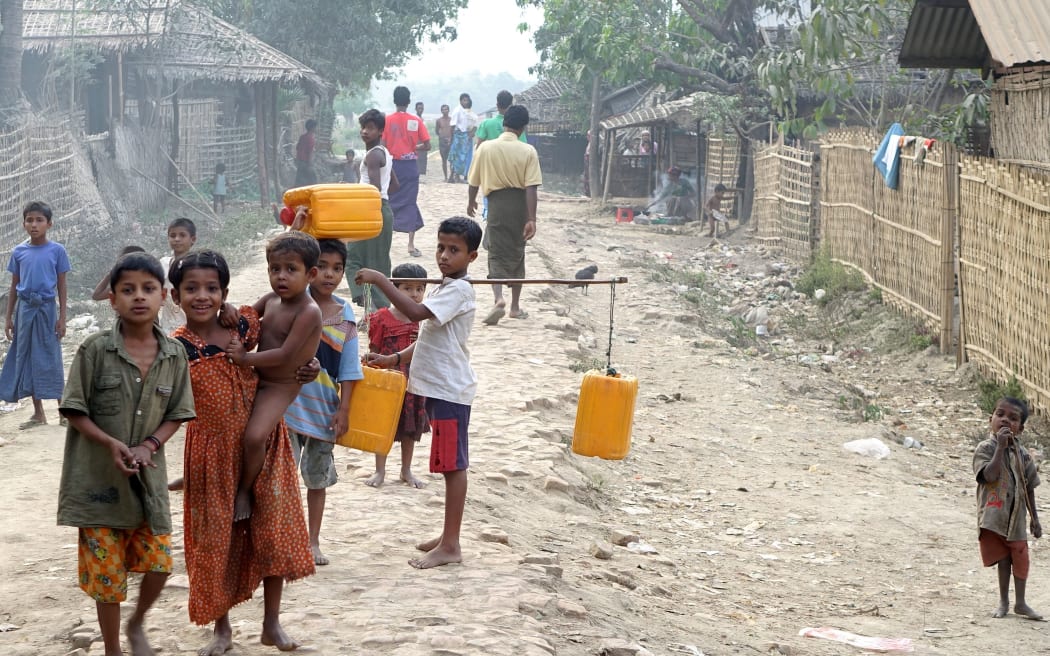
Water collection time at a Rohingya village in Myanmar's Rakhine State. Photo: ( RNZ / Graeme Acton )
February was peak season for the human traffickers targeting the Rohingya people in eastern Myanmar's Rakhine State, with calm seas and no rain in the skies over its forlorn and shabby capital, Sittwe.
It's a dusty, dirty, broken-down town with little or nothing to commend it to tourists apart from being a stopover point en route to the ancient ruins at Mrauk U, the epicentre of an entirely different kind of Buddhist civilisation 500 years ago.
But these days even the Muslims of Mrauk U have been moved from the town to refugee camps nearby.
Human rights groups say there has been a dramatic drop in the number of Rohingya leaving Myanmar this year. They attribute this to a crackdown on human trafficking by countries including Thailand and Malaysia, and the political changes at home following the landslide election win by Aung San Suu Kyi's National League for Democracy (NLD) in November.
"It's up to the incoming NLD government to get the basic freedoms for the Rohingya sorted out," says Human Rights Watch Asia director Phil Robertson.
However the Myanmar government does not currently recognise the 1.1 million Rohingya Muslims as citizens, referring to them as "Bengalis", insinuating they are illegal immigrants from Bangladesh. The group is still banned from travel within Myanmar and face restrictions when accessing education and healthcare.
The word "Rohingya" translates as "Sons of Arakan" - Arakan being the original name for what is now the Rakhine State, renamed by the military government in 1989.
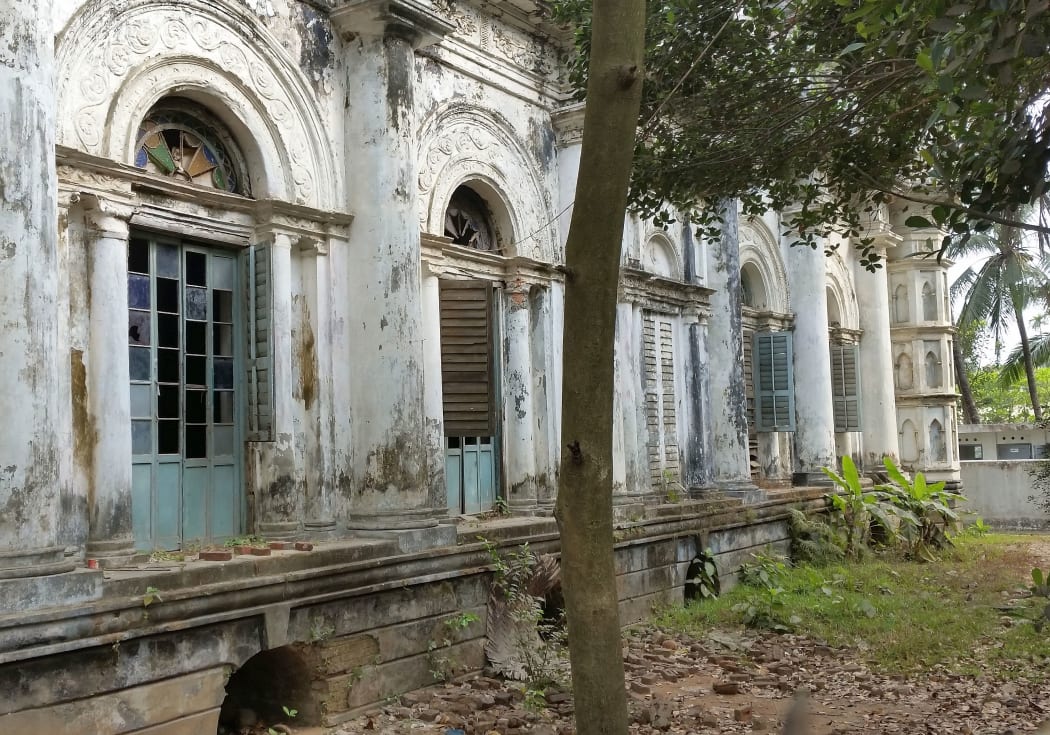
An abandoned mosque in Sittwe. Photo: ( RNZ / Graeme Acton )
Huge amounts of Rohingya property were seized in the Rakhine State following the 2012 outbreak of ethnic violence between Muslims and Rakhine Buddhists, which killed over 150 people, and many of the Rohingya have no option but to wait in one of nine camps dotted outside Sittwe for "Internally Displaced Persons" (IDPs).
The Rohingya remain stateless, without rights, without citizenship, with their lands taken from them and without the immediate means to change the situation.
Rohingya community leader Kyaw Hla Aung says the situation his people face is dire. "In all my life, I have never seen such discrimination."
"The boats were the only escape", he says, referring to the many young people taking their chances on the boats organised by people-smugglers. They hope for a sympathetic reception in Thailand, Malaysia or Indonesia.
It was these boats and their human cargo that brought the Rohingya to the world's attention in 2015.
But now the boats don't come because smugglers have nowhere to go, after countries in the region cracked down on their trade. Malaysian police have also arrested asylum seekers queuing up at the offices of the UN refugee agency and some 2500 Rohingya are currently held in immigration detention centres across Malaysia.
The Myanmar authorities have targeted the smugglers, following international media attention. They have succeeded in halting the trade almost entirely. After 50 years in charge, the Tatmadaw, the local name for the army, is expert in eliminating such problems with ruthless efficiency.
But despite the lull, the trafficking rings are just biding their time, watching and waiting in Bangladesh, and elsewhere, for conditions to ease so they can resume their trade in human misery across the Bay of Bengal.
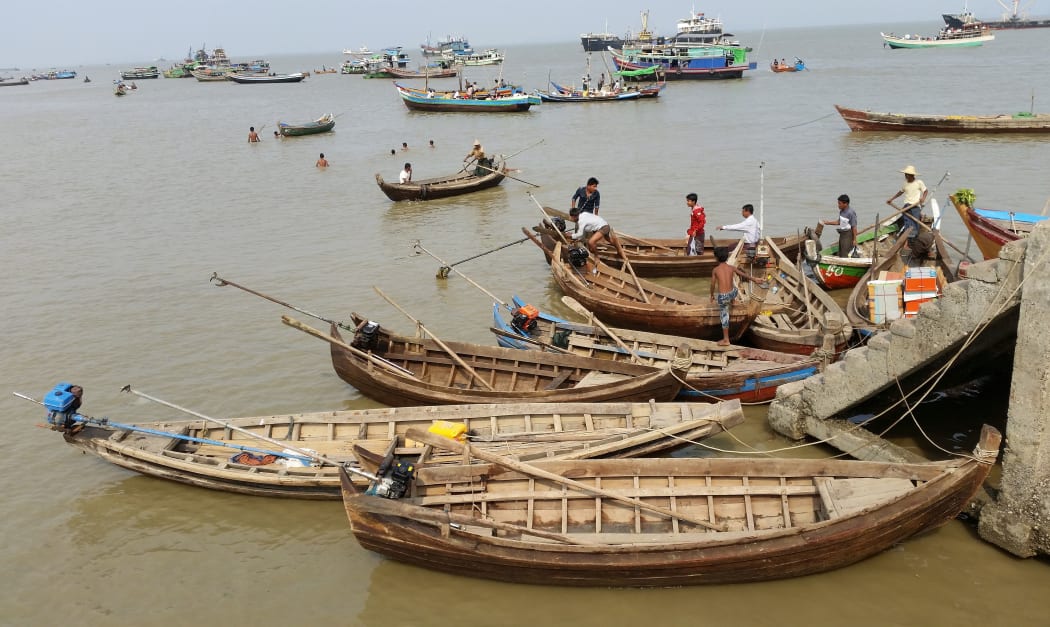
Local fishers and ferrymen at Sittwe Port Photo: ( RNZ / Graeme Acton )
As a visitor to the town, it appears Sittwe has been ethnically cleansed, with no sign Muslims ever existed as shopkeepers or landowners in the town.
And the place has a certain tension that's absent in other parts of the country. The same poverty, perhaps, and the same sort of town but Sittwe's atmosphere is different - there are more furrowed brows, fewer smiles for the foreigners, who many of the Buddhist population see as aid workers in town to help the "Bengalis".
In central Sittwe, there remains the small area of Aung Mingalar, a Muslim ghetto of sorts, guarded by army checkpoints and off-limits to foreigners, its residents seemingly prisoners in their own land.
Muslims not in the camps or the Aung Mingalar slum live in villages outside the town and receive little or no help from aid agencies, as they are deemed not to be "displaced". Conditions, however, are equally grim.
And in the squalid IDP camps outside Sittwe, most of the thousands of Rohingya have now settled down to a life of daily survival and a feeling that segregation is becoming more and more permanent.
Some of the camps have rudimentary classrooms for the youngest children - there are a few books, a small blackboard and a space out of the dirt and heat to study the basics of Myanmar language, mathematics and geography.
Displaced teenagers now go to a nearby high school that did not exist two years ago, and aid agencies, as well as the government, have set up more schools and clinics. Food is delivered by aid agencies, who are also involved in improving water and sanitation facilities.
Despite the continuing restrictions, health problems, lack of income and minimal food, the vast majority of the Rohingya have not left Myanmar because they hope things will change under the new government formed by the NLD, which took the reins over power on 1 April and sat for the first time in the past week.
Ms Suu Kyi deftly avoided even mentioning the Rohingya during the election campaign and many in her party feel there are far more urgent matters than the fate of the Rohingya to deal with, as the country moves into a new political scenario.
In the past week, the new government lifted the state of emergency in Rakhine, which had been in place since the sectarian violence four years ago. But, in shambolic Sittwe after dark, the wild dogs howl, demanding their growls are heard in the tropical night, and so much tension hangs in the air in a town where violence and ethnic cleansing are the legacy of a broken relationship between Buddhists and Muslims.
To heal that relationship is possibly one of the biggest challenges faced by the NLD.
Graeme Acton's visit to Myanmar was with the assistance of the ASIA:NZ Foundation
